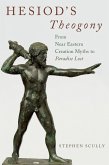This study discusses the question of whether there is a linguistic difference between classical Attic prose texts intended for public oral delivery and those intended for written circulation and private performance. Identifying such a difference which exclusively reflects these disparities in modes of reception has proven to be a difficult challenge for both literary scholars and cultural historians of the ancient world, with answers not always satisfactory from a methodological and an analytical point of view. The legitimacy of the question is first addressed through a definition of what such slippery notions as 'orality' and 'oral performance' mean in the context of classical Athens, reconstruction of the situations in which the extant prose texts were meant to be received, and an explanation of the grounds on which we may expect linguistic features of the texts to be related to such situations. The idea that texts conceived for public delivery needed to be as clear as possible is substantiated by available cultural-historical and anthropological facts; however, these do not imply that the opposite was required of texts conceived for private reception. In establishing a rigorous methodology for the reconstruction of the native perception of clarity in the original contexts of textual reception this study offers a novel approach to assessing orality in classical Greek prose through examination of linguistic and grammatical features of style. It builds upon the theoretical insights and current experimental findings of modern psycholinguistics, providing scholars with a new key to the minds of ancient writers and audiences.
Dieser Download kann aus rechtlichen Gründen nur mit Rechnungsadresse in A, B, BG, CY, CZ, D, DK, EW, E, FIN, F, GR, HR, H, IRL, I, LT, L, LR, M, NL, PL, P, R, S, SLO, SK ausgeliefert werden.









